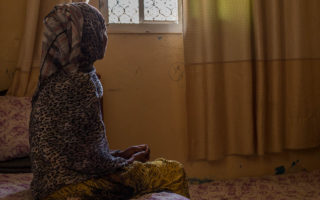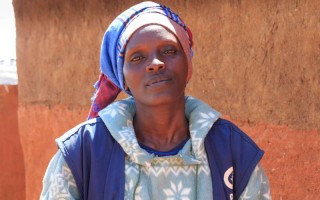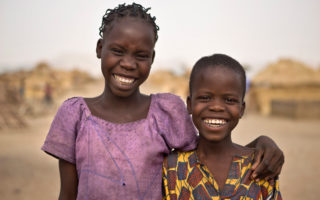Yami Msosa speaks on her experience as a gender-based violence survivor. Her dedication in raising awareness and empowering young women and girls extends beyond her employment at the Sexual Assault Support Centre of Ottawa.
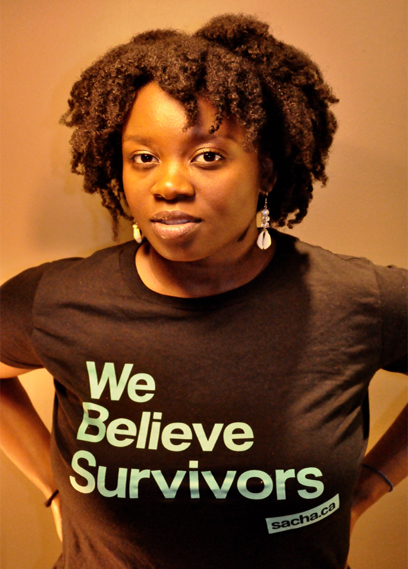
You are a survivor of sexual gender-based violence. How were you able to overcome barriers due to such violence?
I was able to overcome the barriers by breaking the silence on the violence that I experienced. For the longest time, I was unaware of how to classify my experiences because I knew what happened did not feel right. On top of that, like many survivors, I suppressed the memories. It was not until I was able to talk about my experiences with someone that I was able to process what actually happened. I believe that sometimes it can be confusing because people think that sexual violence is this “outward thing that happens and that when it happens you know”. Yet for myself, I found that I did not know – in many ways I normalized the experiences. Not to mention, I did not want to attach myself to the label of “survivor” because that holds a lot of stigma.
In the beginning, I shared my story with a friend. I shared what happened to me and she told me that it was not okay. I knew what happened was not okay, but that changed when I was able to get validation from someone else. She just listened and gave me her perspective. Most importantly, she asked me what I wanted to do. At that point I just wanted to share. It was not until later that I was able to discuss with someone the symptoms that affected my relationships, such as anxiety and other unhealthy coping skills. As I reminiscence, I can now see how my mental health was not the greatest and how I struggled with relationships, but at the time I thought everything was okay. I believe breaking the silence and knowing that I was not alone is what really helped me get through.
You work for Sexual Assault Support Centre of Ottawa (SASC) as a Public Education Coordinator. How does your position enable you to help empower others?
We do not judge people as broken and we do not pathologize them. We meet survivors at their present condition and support them based on their needs. “Survivor Run, Survivor Directed” is our motto. In order to help others through my position at SASC, the key elements that I always remember are:
- survivors are the expert,
- there is no right or wrong way to heal—everyone’s journey is going to look different,
- coping around sexual violence is different for everyone,
- listening can be the most powerful tool,
- sometimes we experience secondary trauma because of the way that systems respond to our realities,
- allowing survivors to make mistakes and focus on the concept of “holding space” for people, etc.
What are the specific challenges experienced by refugee women that you encounter in your work at the Sexual Assault Support Centre?
I believe there are multiple challenges that immigrant and refugee women experience, such as navigating a new country, feeling isolated, having a precarious status, and poverty. In 1995 we began the Women and War Program at SASC, which focuses on immigrant and refugee women. We were able to describe widespread barriers, such as the lack of community supports for women and the lack of services. We learned that many women did not want to talk about their experiences of war. In fact, they considered it to be “in the past” or that it was “too painful”. Rather, the women wanted to focus on their present and future circumstances.
The theme of the 16 Days of Activism Against Gender-Based Violence campaign is “equal access to education”. How does challenging discrimination and inequality promote greater access to education?
This is a complex question. Violence has an impact on being able to access education in multiple ways. When survivors are coping with violence or the effects of violence, they can go into survival mode. This involves focusing only on the day-to-day – which means education may not be a priority. Furthermore, coping strategies may come into conflict with being able to succeed, such as when survivors have memory loss, anxiety, fear, distrust, post-traumatic stress disorder, or depression. All of these would cause significant barriers to being able to access education and maintain the focus required to excel in school.
Due to stigma around sexual violence, people may not want to share their experiences in order to be able to become accommodated around educational systems. In every culture, there is some form of stigma around sexual violence and myths are rampant. Not everyone is educated on the nuanced impacts of sexual violence; these survivors also face the reality of not being validated in their experiences.
I am literally telling the world that I am a survivor, because I want folks to know that this is what a survivor looks like and that we are not broken. We occupy every part of society, every profession. And we are a force to be reckoned with.
